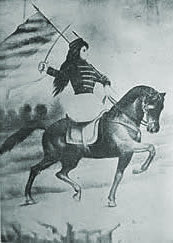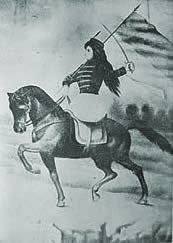
|
Women and Independence in Latin America An exploration of women's involvement in the Latin American Wars of Independence |

|

|
Women and Independence in Latin America An exploration of women's involvement in the Latin American Wars of Independence |

|
Gender:Male
Ethnic origen: White
Events:
| 1747 | - | Arequipa | - | Not applicable | - | He was born in Arequipa, 26 January 1747. |
| 1761 | - | Cuzco | - | Unknown | - | He entered the Compañia de Jesús. |
| 1767 | - | Italy | - | Unknown | - | He was exiled to Italy in 1767. He lived in Massacarrara, Italy. |
| 1782 | - | London | - | Unknown | - | He went to London in 1782 after the Túpac Amaru rebellion and lived here from 1794 to 1798. |
| 1792 | - | France | - | Unknown | - | He wrote Carta a los españoles americanos. |
| 1798 | - | London | - | Unknown | - | He died on 10th February |
Connections:
BaquíjanoBiography:
A Jesuit born in Arequipa, 26 January 1747. He was exiled to Italy in 1767 and then to London. Wrote Carta a los españoles americanos (1792) it was edited and translated into French after his death. It was used as powerful revolutionary propaganda for the independence movement.
In 1761 he entered the Compañia de Jesús. The Order was expelled in 1767 by the Spanish Crown. He lived in Massacarrara, Italy with his brother, also a former Jesuit, until he heard of the Túpac Amaru rebellion and decided to help the insurgents. After the rebellion failed, the Vizcardo y Guzmán brothers went to London (1782) where they met other discontented Spanish Americans. They moved between France Italy and England until his brother died in 1785. He wrote Carta a los españoles americanos in Paris. It was circulated in London in French. Mentions a letter written by him in 1795 in which he talks about the political situation in Lima and a group of intellectuals who edited El Mercurio Peruano. He wrote (no reference) that they show “los rápidos progresos que han hecho las luces en aquel país. […] La Inquisición no ha podido impedir que la razón y la filosofía pasen a iluminar ese hemisferio. […] El descontento general ha llegado al colmo y estallerá una vez que encuentre un punto de apoyo en cualquier fuerza extranjera que se presentase. Este es en sentir de uno de los pasajeros que han venido …desde Perú [probably Bernardo O’Higgins]”.
Vizcardo’s Carta was published by Miranda in 1801, “a fin de preparar la opinión pública”. It began, “hermanos y compatriotas” and spoke of “el nuevo mundo es nuestra Patria”. He described life under Spanish rule as characterised by “ingratitud, injusticia, servidumbre y desolación”. He repeated Baquíjano’s sentiments that opposition to universal well-being was tyrannical and that laws designed to destroy a people’s base of prosperity were a “monstrosidad superior a toda expresión”. (Tamayo Vargas, 460-462)
He cited Thomas Paine and Montesquieu. (Lynch, ed., 32, 36) His work reveals evidence of enlightenment ideas. (Griffin, 248)
He was a native of Guayaquil, and lived in London from 1794 until his death in 1798. (Liss, 272)
References:
Lynch, John (editor). (1994) Latin American Revolutions
Romero de Valle, Emilia (1966) Diccionario manual de literatura peruana y materias afines
Tamayo Vargas, Agusto Literatura peruana